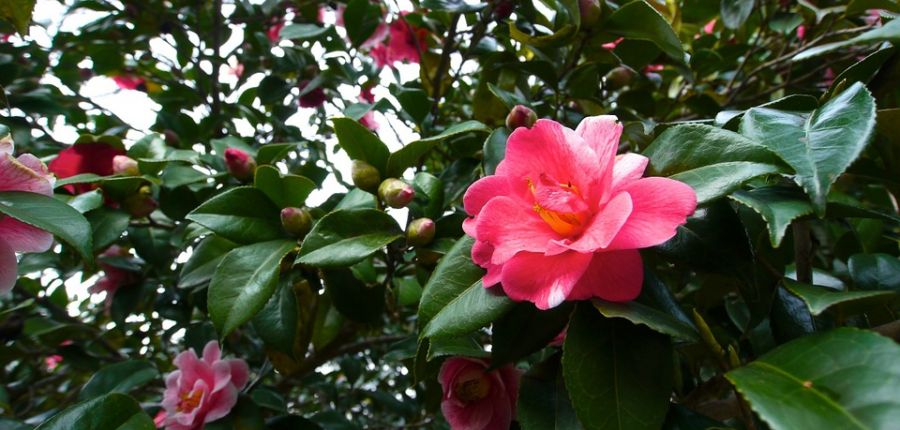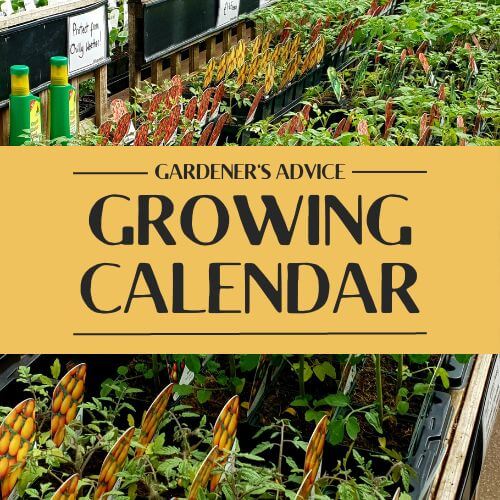Camellias - and how to care for them
Posted By: Hugh Forbia Category: Plant Care, Seasonal AdviceFew garden shrubs have such a fine display of large showy flowers over such a long period. With some varieties blooming as early as February, Camellias bring the beauty and elegance of roses to the wintertime.
Named after botanist Georg Kamel, Camellias were introduced from China during the 18th Century as part of the tea trade (their dried leaves produce tea). By the middle of the 19th Century they became the height of fashion and their popularity endures to this day as a spectacular addition to any garden.
Camellias bring evergreen structure to the garden. They tolerate a variety of aspects including shadier sites which make them useful in an awkward corner of a city garden. Their blooms are prominently red through to pink and white including many interesting bi-coloured varieties. Like Roses they come in all manner of single and double forms. Camellias partner spring bulbs well as they flower at similar times giving a cheery winter display.
You generally don’t find Camellias growing in gardens here as they don’t like Bristol soil (which is mostly alkaline), however they do make a spectacular and easy-to-grow choice for a large pot or barrel. If you do wish to grow a Camellia in the ground we recommend you test the pH of your soil beforehand (A pH of 5.5 to 6.5 is perfect).
Camellias in pots
In time Camellias can become large specimens so choose a generously proportioned pot and ensure good drainage.
It is essential they are planted in ericaceous (acidic) compost.
They are happy in a range of aspects, from full sun to a shaded North- facing position; however partial-shade is best. Avoid siting the pot in early morning sunshine in the winter. This can cause the rapid thawing of the flower buds and subsequent drop before they have opened.
Camellias don’t like to be soggy but don’t let them dry out either. Regular watering throughout the spring and summer months will ensure a healthy plant.
Buy a fertiliser that is specifically for acid loving plants. You must feed your plant in July / August as this is when it makes the flower buds for next year. If it’s hungry now it won’t flower next spring. A slow release fertiliser is a single application that will keep your Camellia fed all season. Sequestered Iron can be applied as a tonic during the growing season.
Pruning is not strictly necessary but it can help to maintain a dense, bushy compact plant that will produce lots of flowers. Do your pruning in late spring just after flowering has finished.
Key Points to Remember
Acid Soil Avoid morning sun Water well in summer
Feed regularly Adequate pot size







